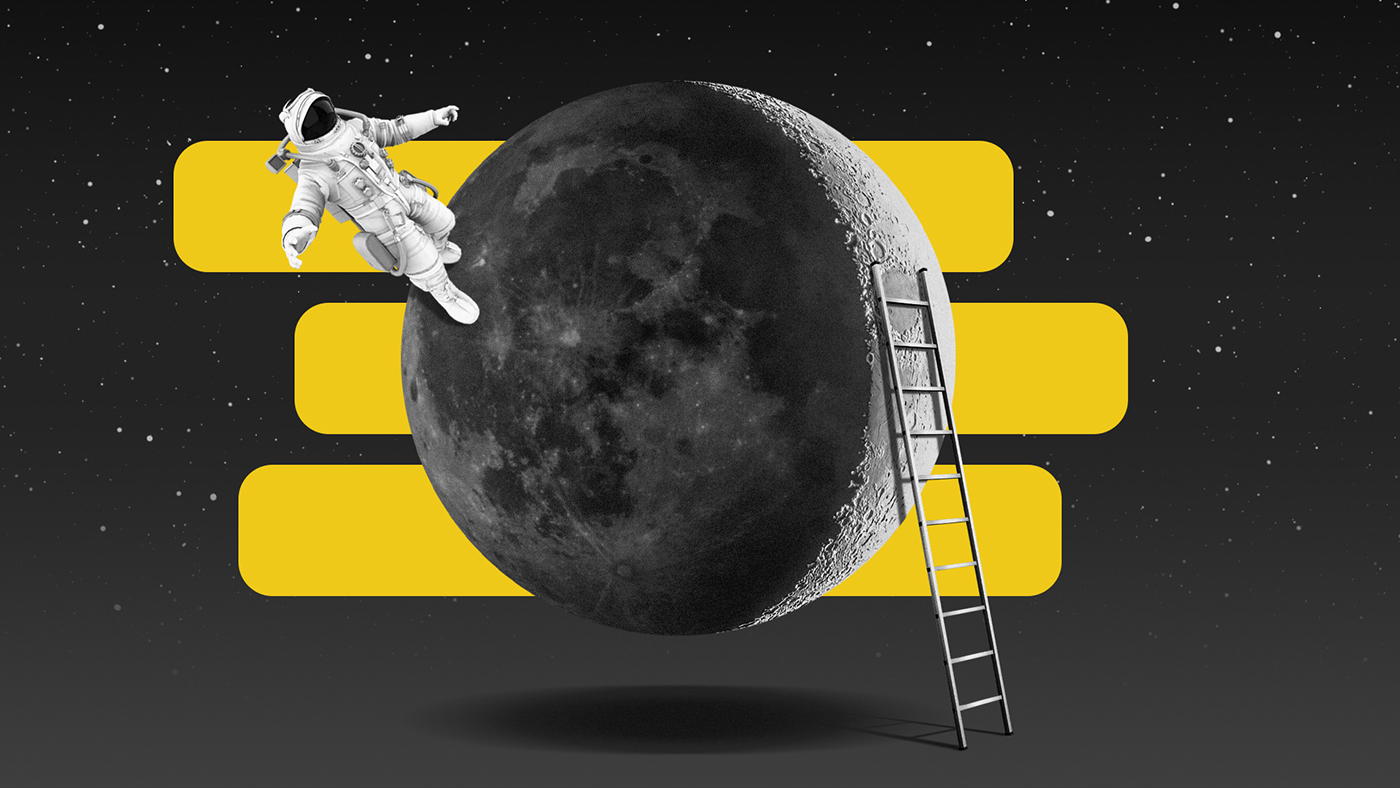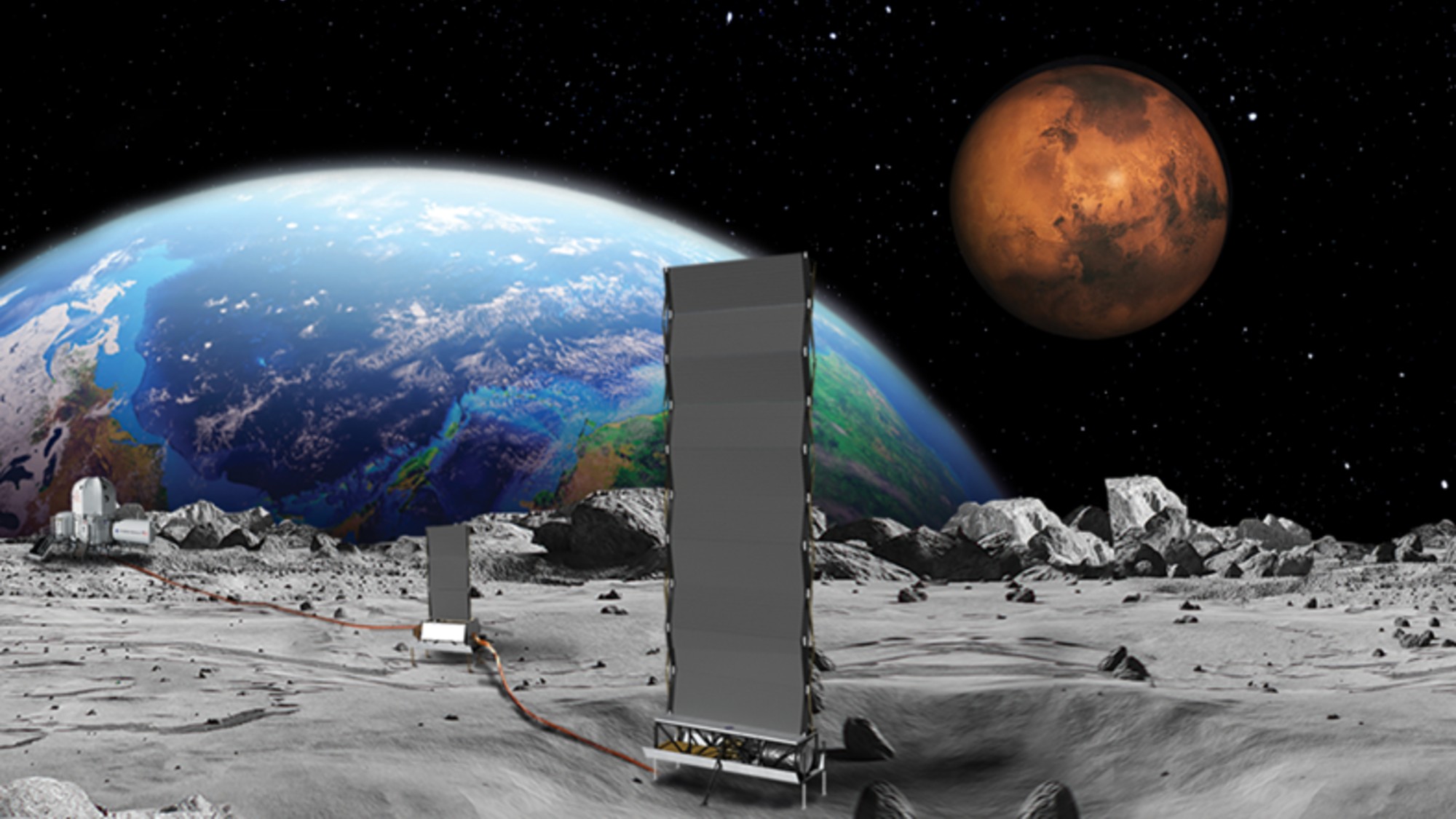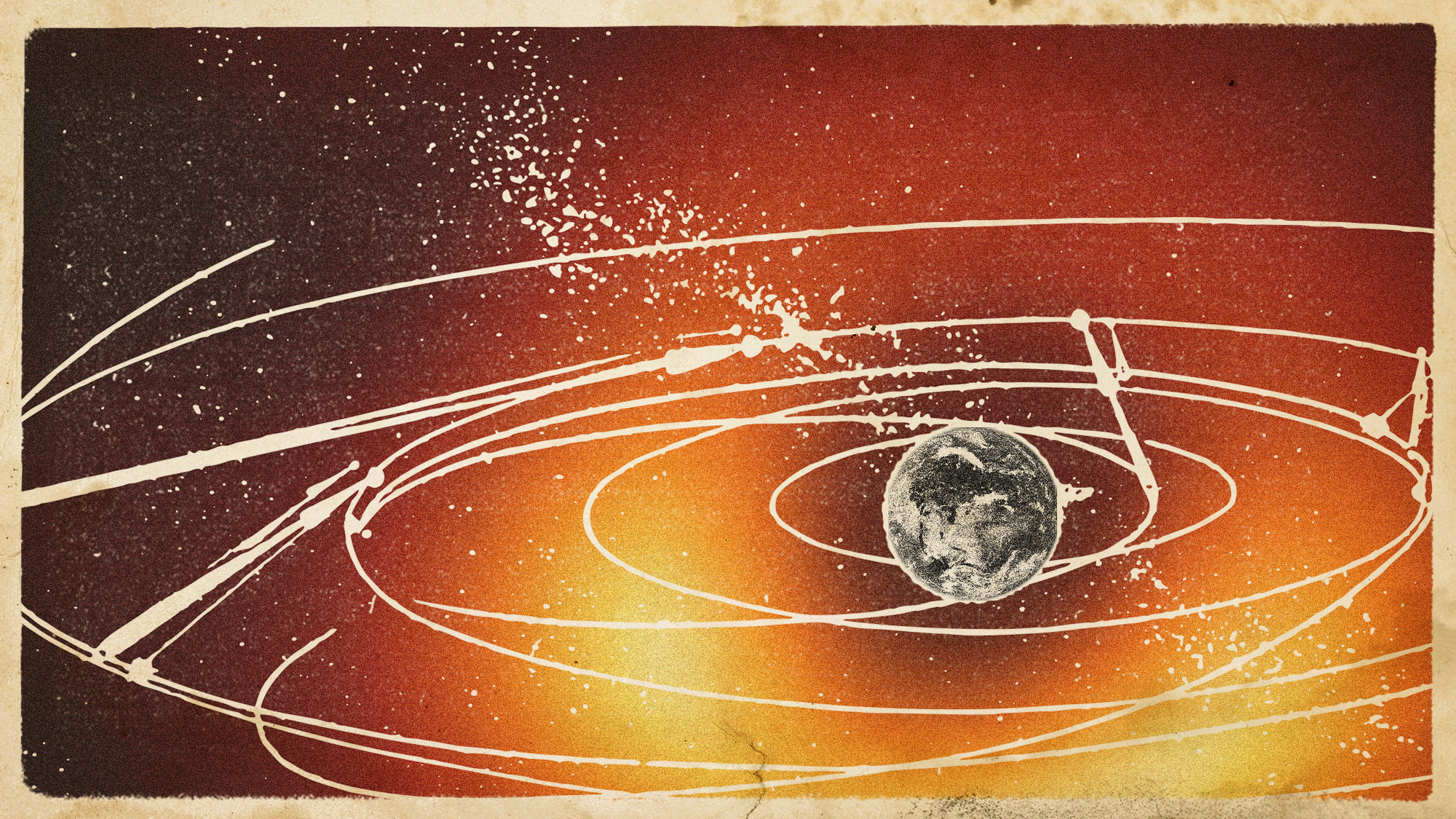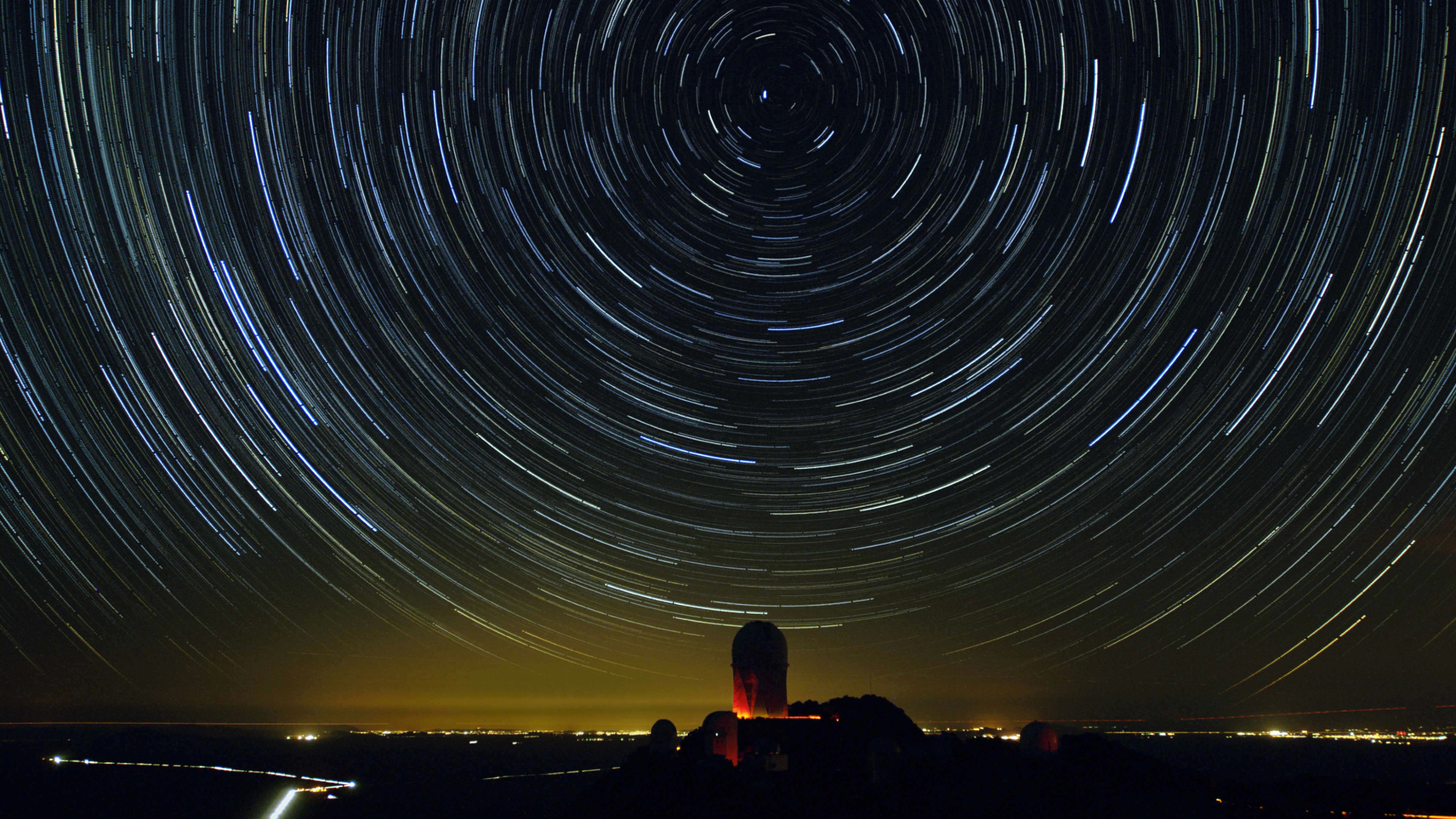Why is everyone rushing to the moon?
The sky's the limit in the new space race


A free daily email with the biggest news stories of the day – and the best features from TheWeek.com
You are now subscribed
Your newsletter sign-up was successful
It's been more than half a century since astronaut Gene Cernan wished "godspeed" to his Apollo 17 crew as he took his final steps into NASA's lunar lander and prepared for his voyage back to Earth, becoming the last human being to stand on the surface of the moon to date. As he left the moon's Taurus-Littrow valley, Cernan acknowledged that with the close of NASA's Apollo program, he — and humans in general — would be "back home for some time to come." With a note of prophetic optimism, however, Cernan also hinted that humankind's Earthbound respite would be someday broken with another lunar return "not too long into the future."
Five decades later, Cernan's prediction seems poised for validation. Another space race, already underway, has intensified in recent months, with countries across the globe once again setting their sights on the moon as the next stop — and step — in our push into the broader reaches of the galaxy. So what's behind this resurgent lunar rush, and where (aside from the moon) could it lead?
What the commentators are saying?
Last week's successful launch of India's Chandrayaan-3 robotic lunar mission comes "amid renewed interest in exploring the moon," The New York Times said recently, noting that "the United States and China are both aiming to send astronauts there in the coming years, and a half dozen robotic missions from Russia, Japan and the United States could head there this year and next." In particular, the U.S. and China are in "a space race," NASA administrator Bill Nelson told Politico earlier this year. "We better watch out that they don't get to a place on the moon under the guise of scientific research," he added. "it is not beyond the realm of possibility that they say, 'Keep out, we're here, this is our territory.'"
The Week
Escape your echo chamber. Get the facts behind the news, plus analysis from multiple perspectives.

Sign up for The Week's Free Newsletters
From our morning news briefing to a weekly Good News Newsletter, get the best of The Week delivered directly to your inbox.
From our morning news briefing to a weekly Good News Newsletter, get the best of The Week delivered directly to your inbox.
In spite of being "an enormous scientific achievement," China's successful 2019 mission to the dark side of the moon was significant because "the Chinese have always viewed their space program as a political message," agreed Dean Cheng, of the conservative Heritage Foundation think tank. "Developing an advanced space capability will be exploited for political as well as military purposes."
"Despite heading toward the same physical destination," NASA's current Artemis program to return to the moon "bears little resemblance to its predecessor," Foreign Policy's Deganit Paikowsky explained. "The playing field of today's space race is bigger, and the models of competition differ," with the focus not simply on exploration but the "potential for long-term economic opportunity."
"In the past, the space race was about who could reach the stars first and return home," Air University professor Svetla Ben-Itzhak concurred. "Today, the goal has shifted to surviving and even thriving in the harsh environment of space." Countering Director Nelson, however, Ben-Itzhak pushed back on the framing of the international rush to return to the moon as a "space race," choosing instead to frame things as a "complex system with the U.S. as a leader working closely with extensive networks of partners." As NASA itself confirms on its website, "we will collaborate with commercial and international partners and establish the first long-term presence on the moon."
Whether it's a race or a "complex system," the lunar push comes amidst a broader political-commercial effort to control the skies and beyond, with the moon itself playing a pivotal role in that endeavor. NASA's Artemis missions "will first be looking at ways to develop oxygen and water supplies on the arid lunar surface, which does not have breathable air in its thin atmosphere, later expanding to exploit other minerals such as iron," The Guardian reported. The ultimate goal is to "expand commercial opportunities in space," with non-governmental clients "expected to be among the first customers, using the moon's resources for fuel."
A free daily email with the biggest news stories of the day – and the best features from TheWeek.com
What comes next?
With its just-launched Chandrayaan-3 mission, India is hoping to assert itself as "a power in space exploration and the new frontier of space commerce," Reuters said, noting that only the U.S., Russia, and China have successfully landed craft on the moon so far. To that point, Russia is poised to launch its latest robotic lunar mission next month, picking up its long-dormant "Luna" series which last took off in 1976, the New York Times reported, adding that "also scheduled to head to the moon in August is the Smart Lander for Investigating Moon, or SLIM, from the Japanese space agency JAXA." South Korea, and the United Arab Emirates are also eyeing lunar launches in the coming year, Nature said.
Guiding — or at least informing — this stampede is the U.S.-authored Artemis Accords, a nonbinding "set of principles for operating on the moon, intended to provide helpful guardrails for parties—both public and private—seeking to establish a presence there in the future space economy," Foreign Policy reported. Published in 2020, the accords now have more than two dozen nation signatories, and focus on broad topics such as international data sharing, emergency assistance partnerships, resource extraction, and orbital debris.
NASA's own Artemis 2 mission, meanwhile, is set to launch four astronauts into a lunar loop sometime in the coming year — the first time since 1972, Space.com reported (Space.com is owned by Future plc, the same parent company as The Week). According to The Guardian, NASA's goal is to start "building a processing plant by 2032" on the moon's surface, while a proposed joint-Russian/Chinese lunar research station has no definitive timeline.
Researchers are taking the prospect of a renewed human presence on the moon so seriously that this past spring, the European Space Agency proposed a mundane, but crucial suggestion to help regulate how (and most importantly, when) lunar operations should take place: a special, moon-based time zone, all its own.
Rafi Schwartz has worked as a politics writer at The Week since 2022, where he covers elections, Congress and the White House. He was previously a contributing writer with Mic focusing largely on politics, a senior writer with Splinter News, a staff writer for Fusion's news lab, and the managing editor of Heeb Magazine, a Jewish life and culture publication. Rafi's work has appeared in Rolling Stone, GOOD and The Forward, among others.
-
 Ex-South Korean leader gets life sentence for insurrection
Ex-South Korean leader gets life sentence for insurrectionSpeed Read South Korean President Yoon Suk Yeol was sentenced to life in prison over his declaration of martial law in 2024
-
 At least 8 dead in California’s deadliest avalanche
At least 8 dead in California’s deadliest avalancheSpeed Read The avalanche near Lake Tahoe was the deadliest in modern California history and the worst in the US since 1981
-
 Political cartoons for February 19
Political cartoons for February 19Cartoons Thursday’s political cartoons include a suspicious package, a piece of the cake, and more
-
 NASA’s lunar rocket is surrounded by safety concerns
NASA’s lunar rocket is surrounded by safety concernsThe Explainer The agency hopes to launch a new mission to the moon in the coming months
-
 Africa could become the next frontier for space programs
Africa could become the next frontier for space programsThe Explainer China and the US are both working on space applications for Africa
-
 NASA reveals ‘clearest sign of life’ on Mars yet
NASA reveals ‘clearest sign of life’ on Mars yetSpeed Read The evidence came in the form of a rock sample collected on the planet
-
 Why does the US want to put nuclear reactors on the moon?
Why does the US want to put nuclear reactors on the moon?Today's Big Question The plans come as NASA is facing significant budget cuts
-
 Possible dwarf planet found at edge of solar system
Possible dwarf planet found at edge of solar systemUnder the radar The celestial body has an unusual orbit
-
 We could be living in a black hole
We could be living in a black holeUnder the radar And our universe may not be the only one
-
 Dark energy may not doom the universe, data suggests
Dark energy may not doom the universe, data suggestsSpeed Read The dark energy pushing the universe apart appears to be weakening
-
 NASA's Europa Clipper blasts off, seeking an ocean
NASA's Europa Clipper blasts off, seeking an oceanSpeed Read The ship is headed toward Jupiter on a yearslong journey
